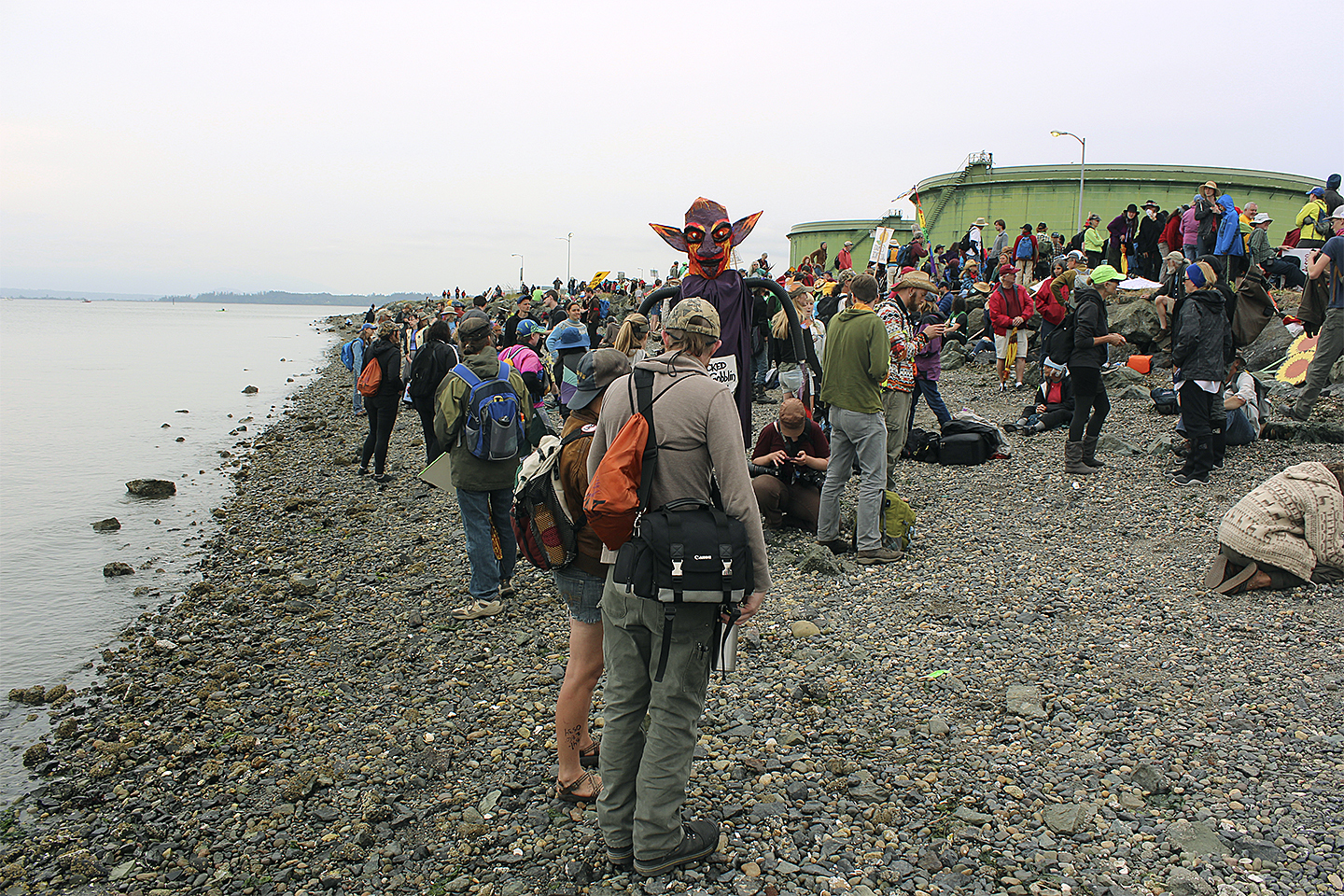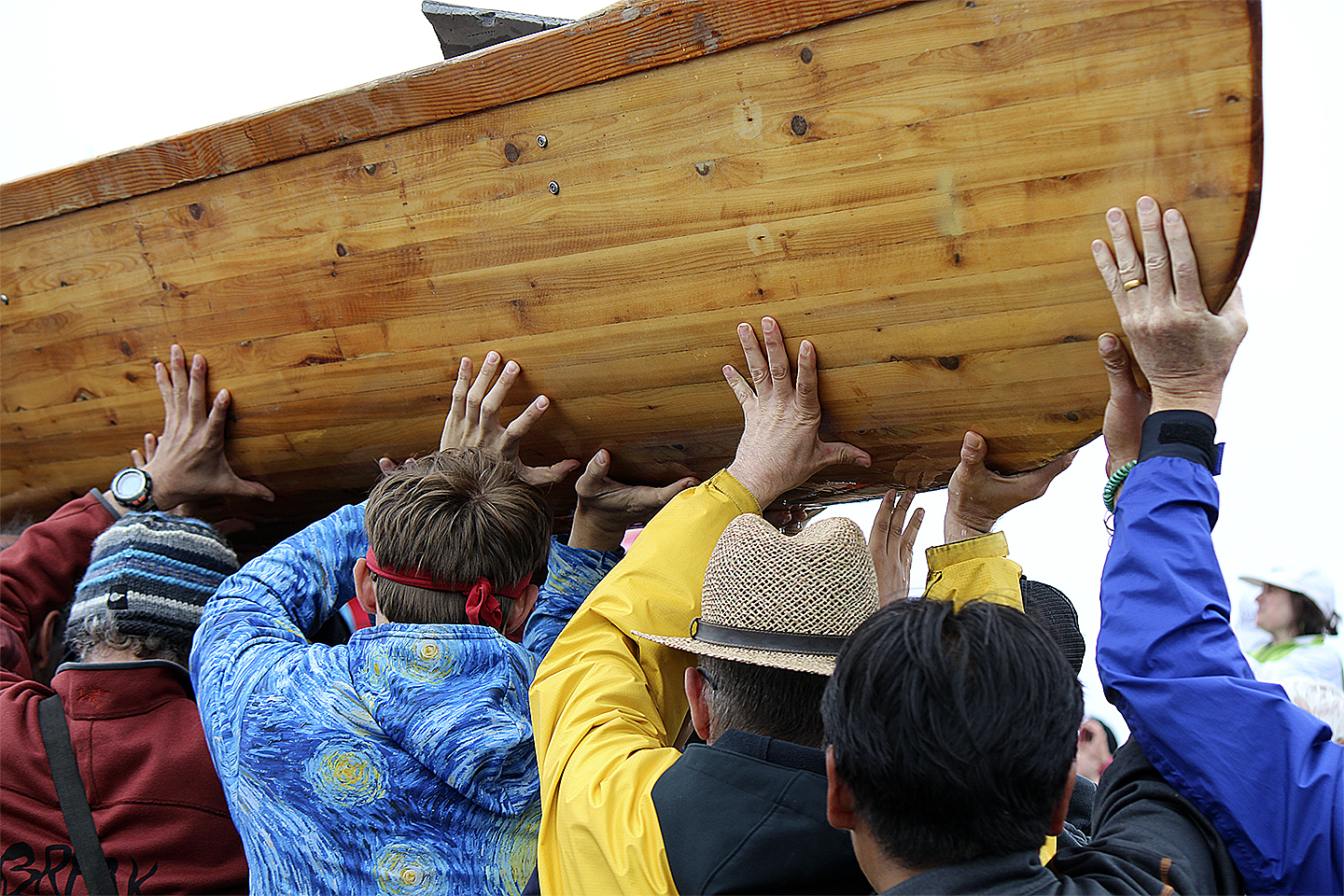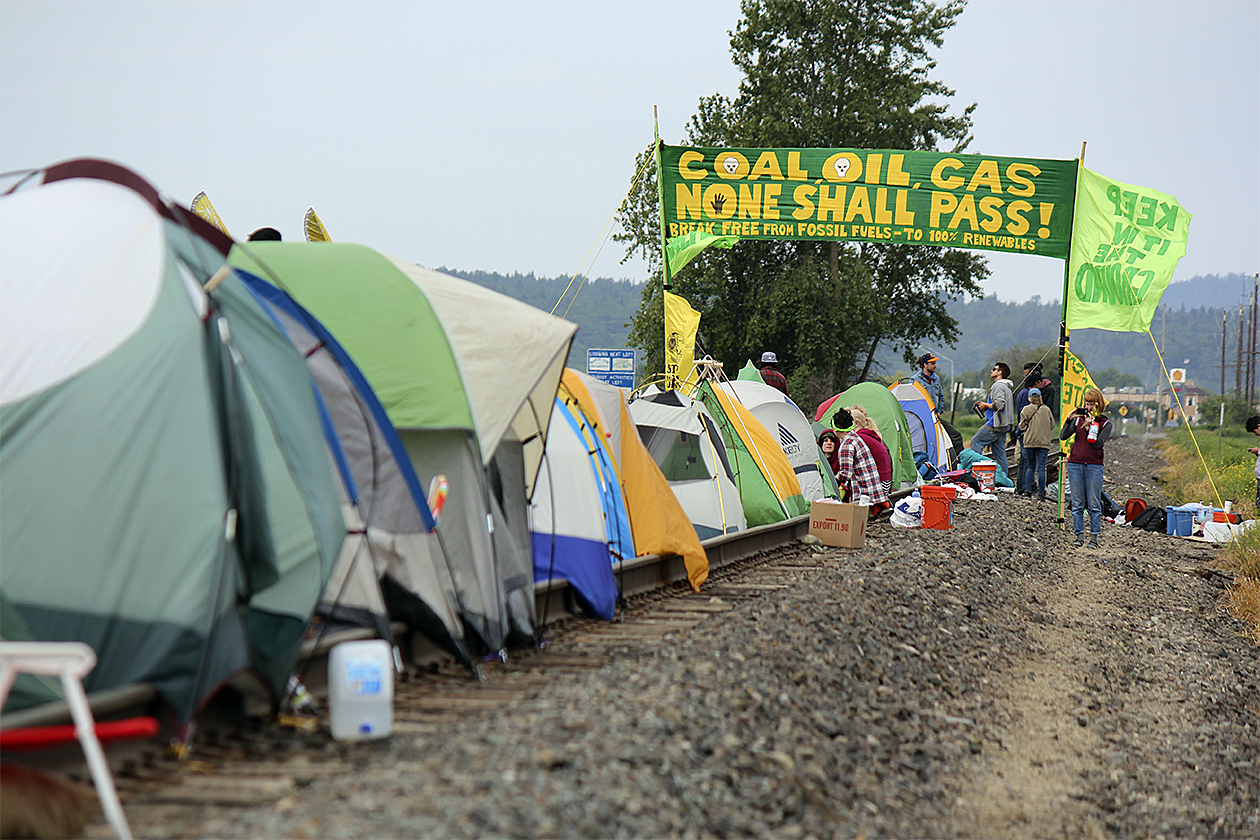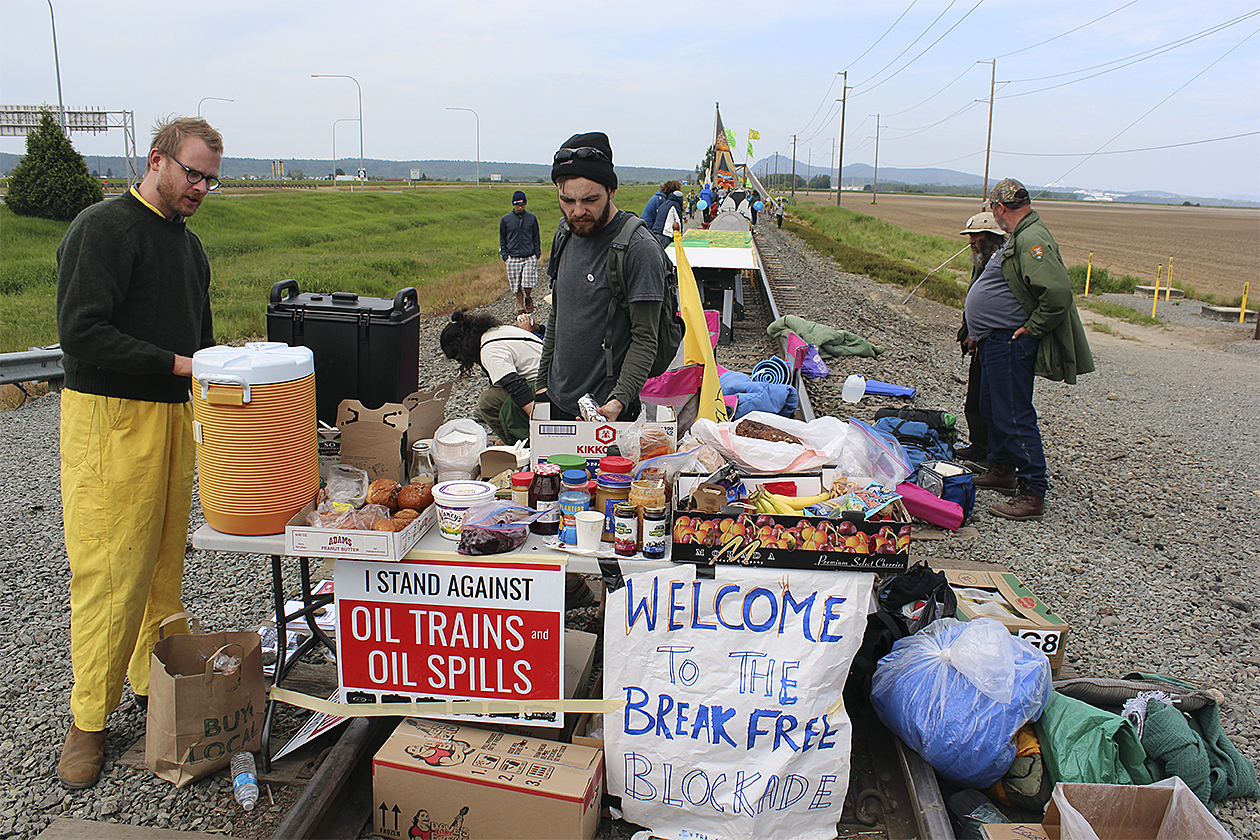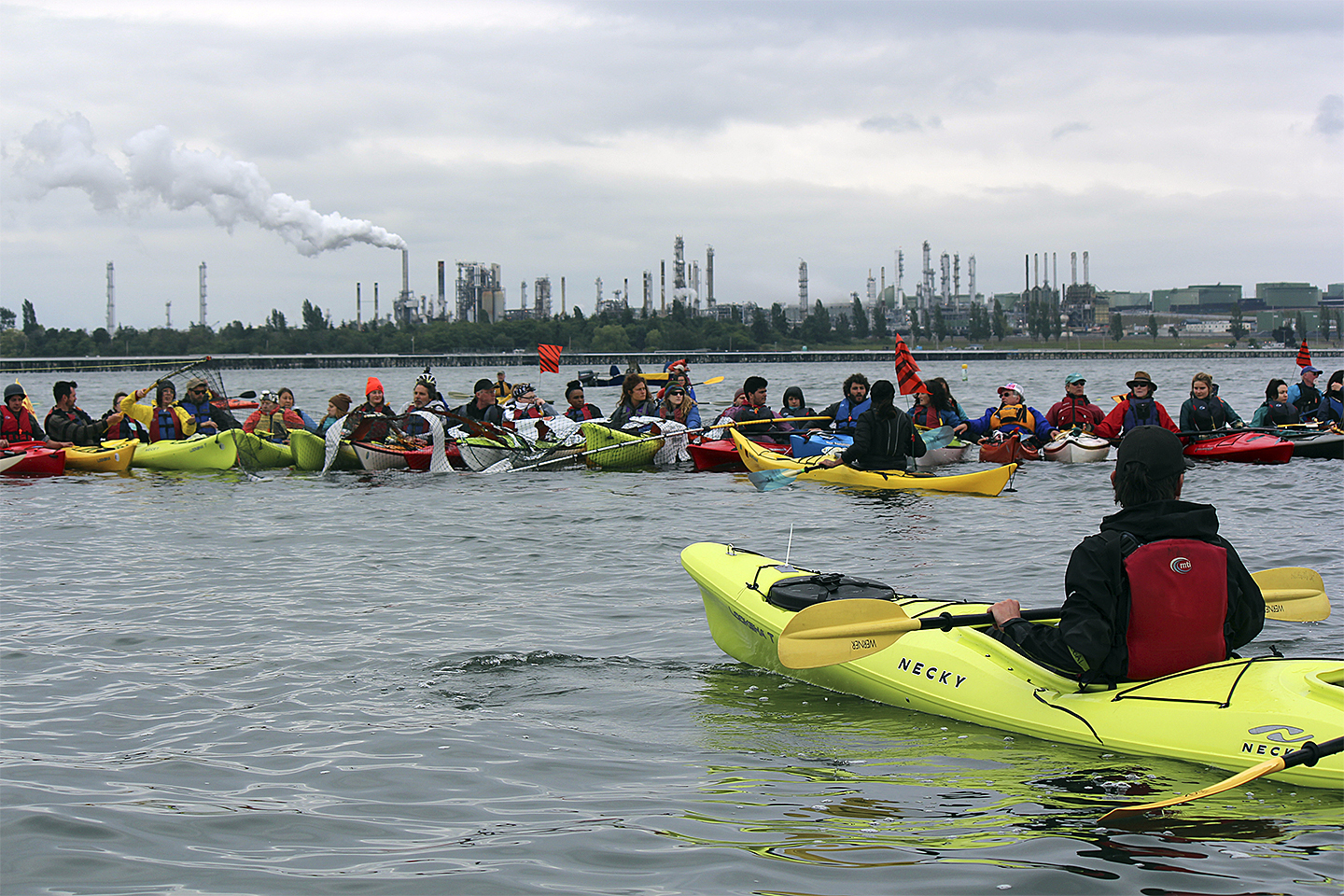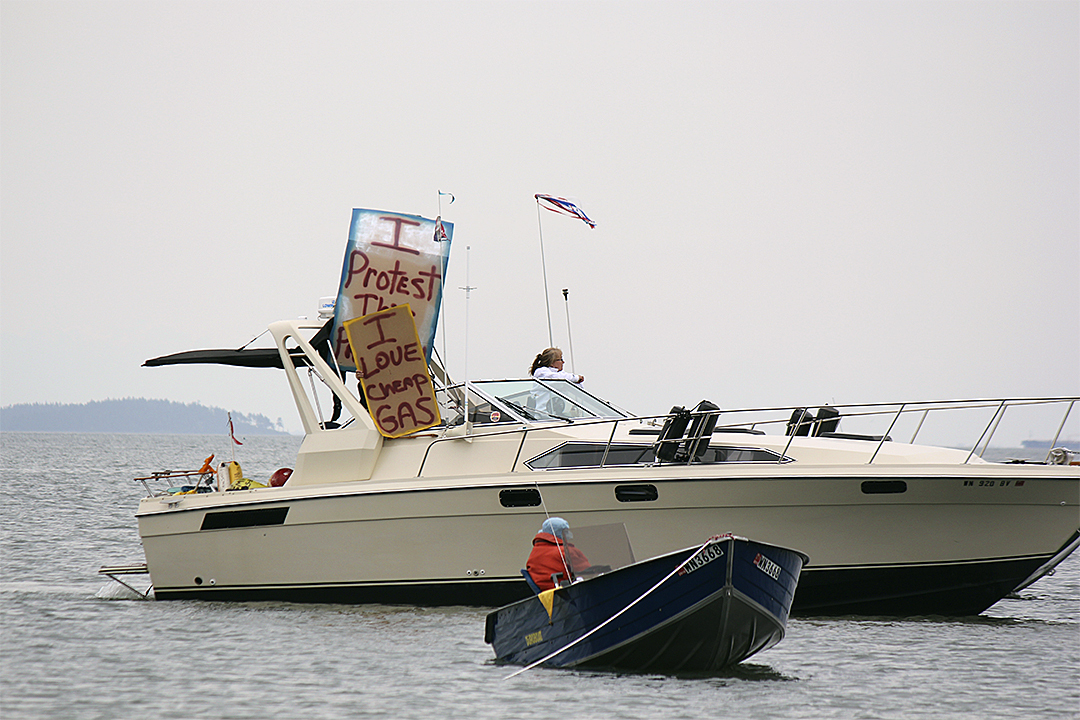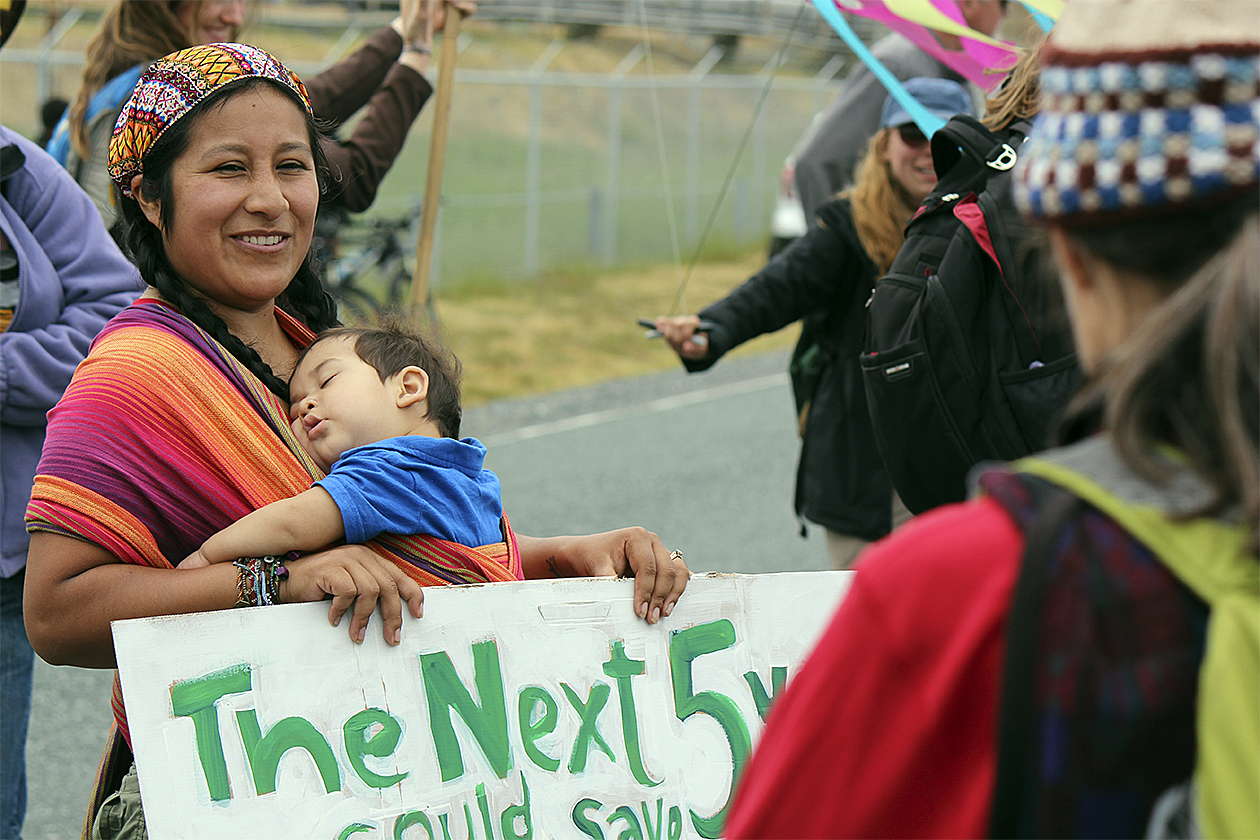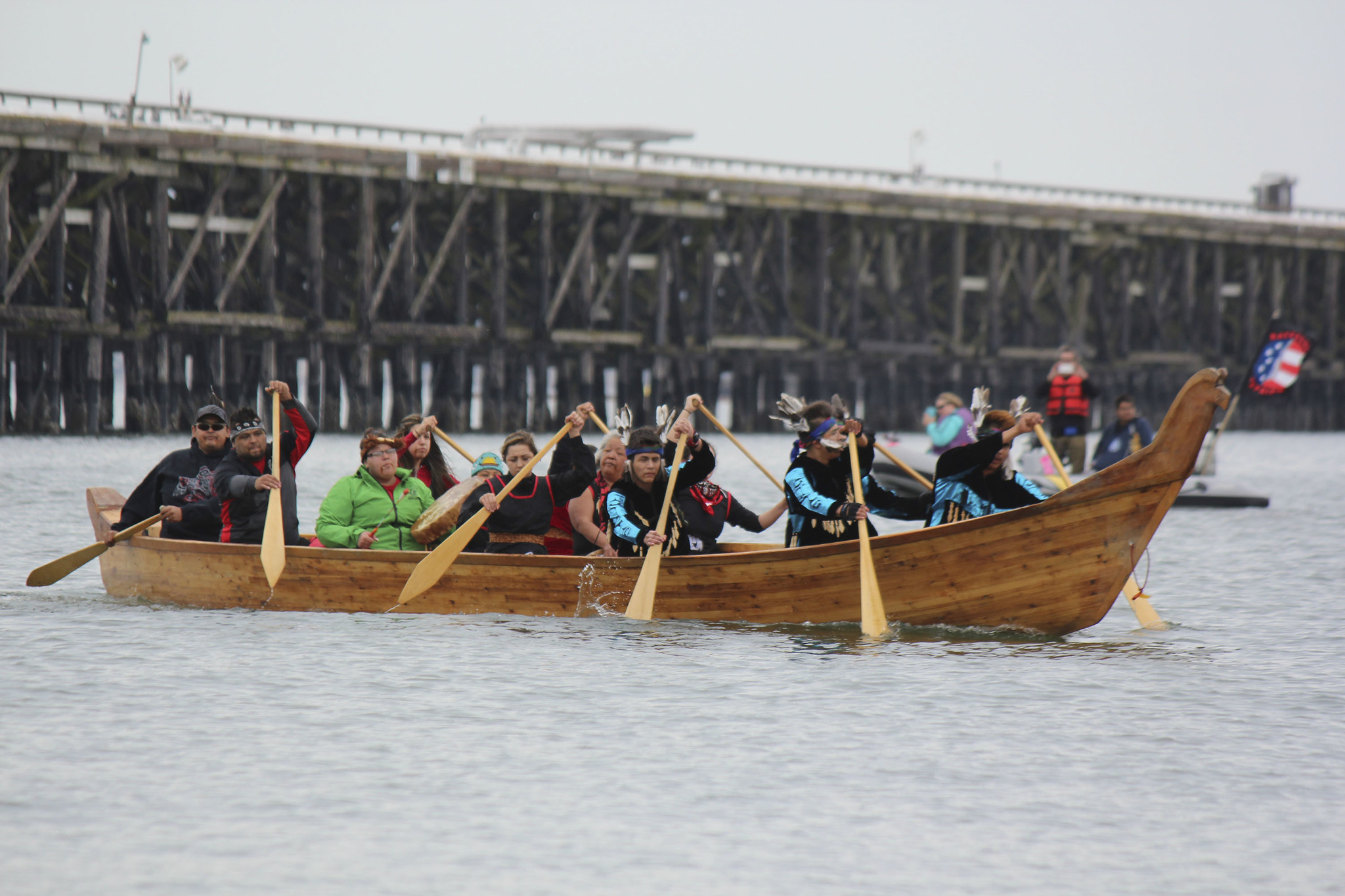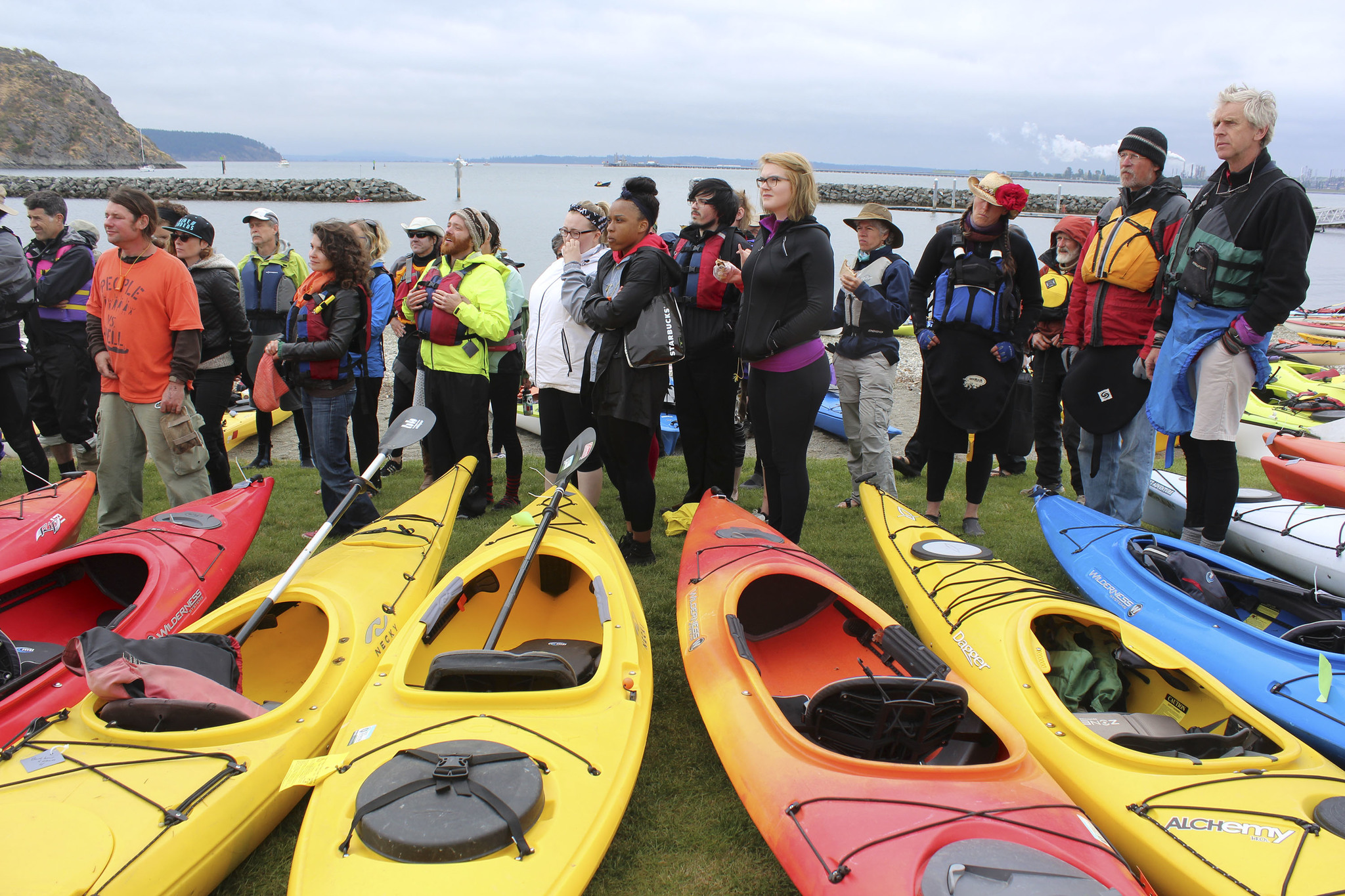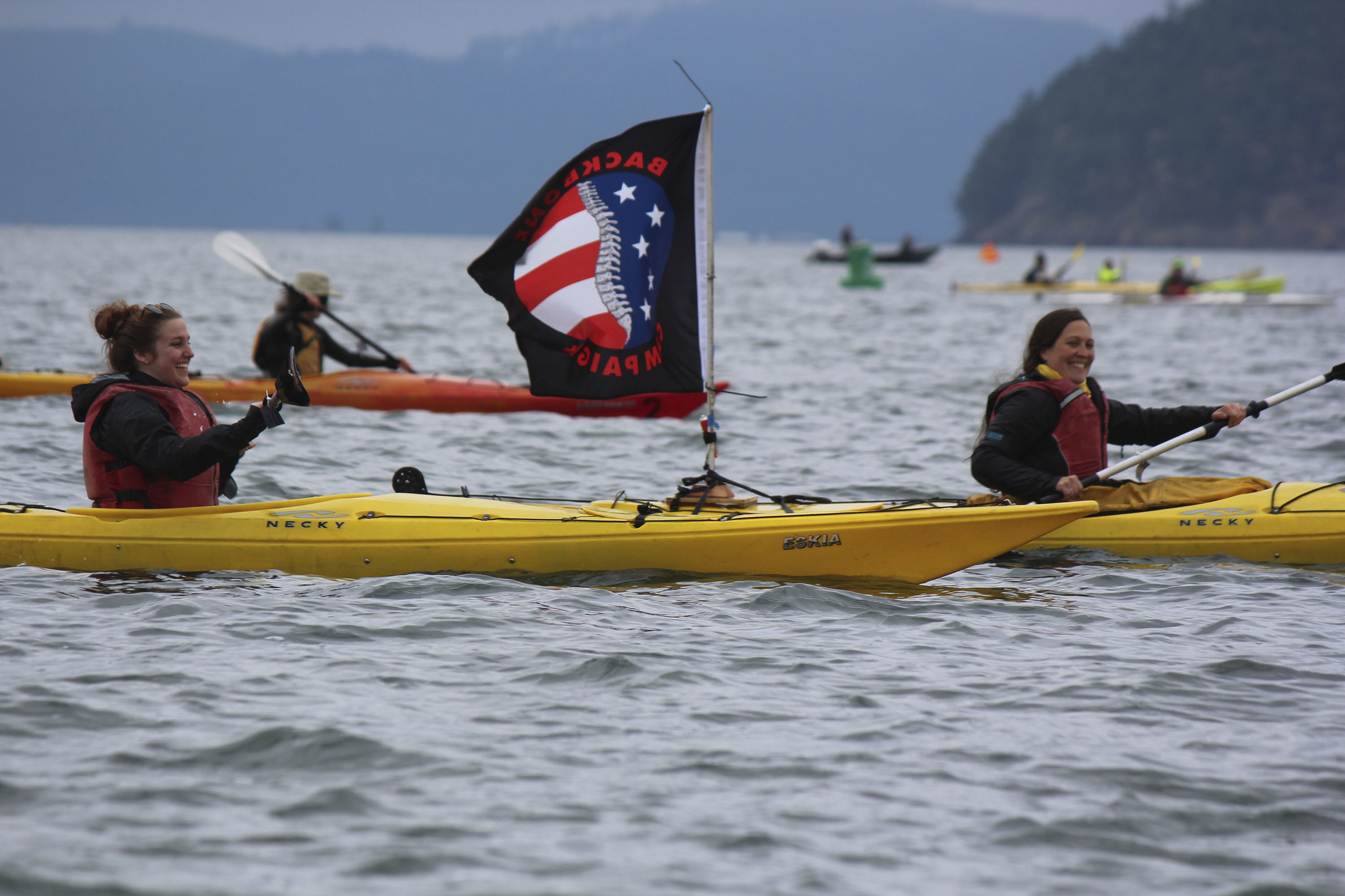It’s midday on Saturday and the air’s a little chilly, the sky a little gray, and the mood at the railroad blockade is confident and relaxed. About 150 protesters, plus tents, sleeping bags, flags, banners, tables crammed with donated food, and a giant metal tripod structure, are lined up along the tracks—tracks that typically carry crude-oil trains to the Shell and Tesoro refineries at March Point in Anacortes. Cars whiz past on Highway 20; some drivers honk in solidarity, others give protesters the middle finger. “Get a job!” shouts one. Then another, hands cupped around his mouth: “Go home, you fucking hippies!”
Protesters, who spent two days and nights on the tracks until they were woken by crowds of police in riot gear wielding pellet guns at 5 a.m. on Sunday morning, laugh at the criticism. “That’s all you can think of? ‘Get a job’? It’s Saturday,” one activist says with a shrug. Adds another, nonchalant: “We are home. It’s called Earth. You are welcome here too.”
Benjamin Joldersma, a Seattle resident and father of three, says he is willing to risk arrest because “we don’t have any more time to see if world leaders are going to fix this.” He adds that he has a lot of compassion for refinery workers and others whose livelihoods depend on the fossil-fuel industry. “This is a very difficult conversation to have,” he says. “This is a conversation nobody wants to have. But it’s time to have it. That’s why we’re here.”
As promised, several thousand activists fanned out across Anacortes last weekend, from the railroad tracks to the water, for “Break Free PNW,” an effort to draw attention to the climate crisis and the world’s dependence on fossil fuels. It was one of dozens of similar “Break Free” events from May 3 to 15 across the country and the world. And overall, it felt like a celebration: a peaceful march and rally on Saturday afternoon along March Point, a luminary flotilla of kayaks on Friday evening, a sit-in near the refineries on Sunday, all in attendance feeling surrounded—mostly—by like-minded folk. (Again, not all witnesses were pleased; one motorboat moored itself near the march on Saturday with its own set of signs, including “I Protest this Protest,” “I Love Cheap Gas,” and “If you drove here, you’re a hypocrit” [sic].)
Police, for the most part, held back. When kayaktivists led an illegal trespass paddle between the two oil docks at the north tip of March Point on Sunday, raising a “Transition Together” banner once on the water and once on land, they were trailed at a distance by the Coast Guard, two sheriff boats, and a line of police SUVs and cops in uniform. No one was arrested.
The railroad blockade garnered the most drama; 52 people were arrested on Sunday morning and brought to the Skagit County Jail. All were soon released on their own recognizance, and event organizers are fundraising for legal fees. “No word yet on charges for those responsible for the climate crisis,” reads the last line of Break Free PNW’s statement on the arrests. “Shell and Tesoro officials are still at large.”
“We’ve been asking our decision-makers to take action for a long time,” says activist Grant Gutierrez, who spent his time at the railroad tracks, and civil disobedience “is one of those ways to stress the immediacy of the issue.” Does it matter that 52 people were arrested for camping on the tracks, people who some call “fucking hippies”? Does it matter that a hundred or so kayaks paddled alongside some oil docks? “At the end of the day, just getting that discourse started, having it visible, having it in the public sphere” is enough, he says. “I think it’s important to make people realize that people are frustrated—and ready to mobilize.”

